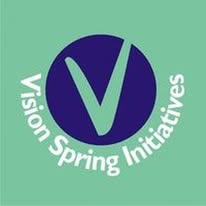As the world celebrates the International Peace Day today with the theme RIGHT TO PEACE, we at Vision Spring Initiative joins the world in celebration. Peace as abundant as it should have been is not so in Nigeria, particularly in the Northern part.
Nigeria suffers a variety of complex political problems including inequality, corruption, oil disputes, national disunity, and the Boko Haram insurgency. This eight year conflict and humanitarian crisis in the north has killed 20,000 and displaced 2.6 million people. Boko Haram mostly use women and girls as suicide bombers, forcing them to detonate bombs in urban canters. According to the UN Children’s Fund, UNICEF, 83 children were used as suicide bombers since January: 55 girls and 27 boys, one was a baby strapped to a girl. The group abducted 67 women and children in 2017. The plight of refugees fleeing the violence is also worsening with the current severe drought and impending famine across northeast Nigeria.
In May, after negotiations brokered by Switzerland and the International Committee for the Red Cross, 82 Chibok schoolgirls were released. Boko Haram fighters had abducted 276 schoolgirls from Chibok, Borno state, in April 2014. More than 100 of the girls and hundreds other captives, including over 500 children from Damasak, Borno, remained in Boko Haram captivity.
Violence has also intensified in the MiddleBelt between Fulani herdsmen and farmers amid claims of trespassing and sabotage. At the end of April 2018, President Trump met with Nigerian President Muhammadu Buhari. It was a very important meeting as President Buhari was the first president from sub-Saharan Africa to visit President Trump at the White House. President Trump was reportedly very interested in the conflict between Fulani herdsmen and farmers in Nigeria’s Middle Belt.
The Niger Delta has also been the scene of serious violence. Between 2006 and 2009 a militant group named MEND protested against the poverty of the region despite the oil wealth it produced. In 2009, a general amnesty was accepted by these militants. However, in 2016, President Buhari’s 70% cut to the amnesty program prompted further unrest. Since 2016, attacks have largely been carried out by the NDA, targeting major pipelines, and provoking huge economic consequences.
Another element in Nigeria’s political status-quo is the legacy of the Biafran civil war (1967-1970) which saw the defeat of Biafran separatists by federal forces and the death of a million people. Grievances in the Igbo community were reignited in 2015 in protests by Igbo youth. The Nigerian government has since been accused of using excessive force, killing 150 protestors from August 2015-2016.
In spite of these violence and conflicts, Nigeria has remained immune to war and secession. We must therefore continue to thrive and maintain peace across the country, especially where it has been deprived for a long time.
Every human being has the RIGHT TO PEACE.
Every Local Government Area has the RIGHT TO PEACE.
Every state has the RIGHT TO PEACE.
Our country has the RIGHT TO PEACE.
We should endeavor to always advocate for peace in every sector and in all tiers of the government. The government, most especially the incoming one should be pressured in ensuring adequate budget is allocated to security and enough effort is concentrated in the Middle Belt and North. Also, the government should ensure that the perpetrators of peace are rightfully impeded.
Our children and women are not suicide bombers and sex toys. A girl child should not be deprived education. A boy child should not be taught to repress his emotions. A woman should not be controlled by laws and stereotypes. A man should not be controlled by laws and stereotypes.
Let’s rise above complex political problems including inequality, corruption, oil disputes, national disunity, gender stereotypes, religion and cultural disunity that has handicapped our progress, growth and development as a country. We have the RIGHT TO PEACE.
“An eye for an eye will only make the whole world blind.”
― Mahatma Gandhi
Ayodele Oluwatobi
Vision Spring Initiative
